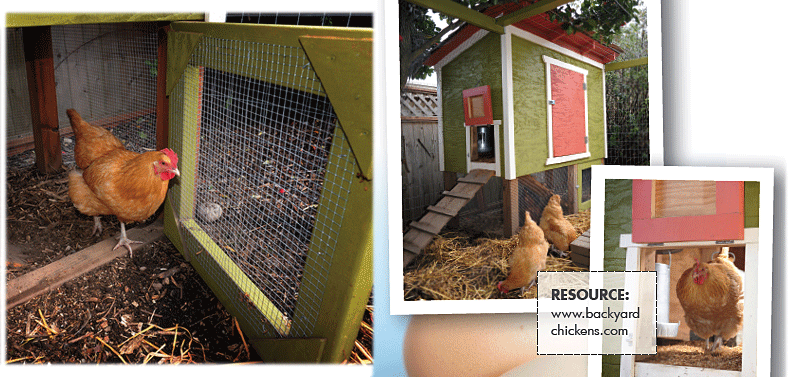| Local families keep backyard coops for homegrown eggs |
There’s a new chicken in town, and you’ll probably find it in your neighbor’s backyard. A growing trend in Central Florida is the owning and tending of your own backyard chicken coop to collect your own eggs. There are a few movements that have contributed to this roots-based lifestyle change. From small farming to a growing local public awareness and being more agriculturally minded, to pursuing green living are all factors that are changing Floridians’ mindsets for the where, who, and how we get our food. Environmentally conscious, local, and homegrown is what appears to be on the top of the list for answering this growing awareness.
BackYardChickens.com (BYC) is a website that has become a resource and community support for individuals or families who want to start their own backyard coop and “promotes the green, self-sufficient, and grow-local movements by educating people on how to raise chickens properly.” They have a helpful Law and Ordinances page under their Learning Center tab for you to search your area’s ordinance. From county to county, these ordinances vary, and then within each city they also tend to be slightly different.
Some variations in the ordinances will include whether chickens are allowed in your location, maximum number of chickens allowed, or if roosters are permitted in your area. Some cities have noise ordinances that do not allow for roosters. It will also list permit requirements, coop restrictions, which list how far the coop must be from residences, and sanitary regulations. For counties like Polk or Hillsborough with a history deeply rooted in agriculture, the ordinances tend to be more supportive, but for counties like Orange or Seminole, only recently have ordinances on backyard chickens been more supportive of city or suburban homegrown eggs. Again, check with your local municipalities for the current ordinances on backyard chicken coops.
There are numerous quantifying reasons why many Floridians are purposely setting out to raise their own hens. The Bravo family in unincorporated East Orange County feels they started by accident when they decided to adopt five chicks through friends at school. Though Chris (an engineer) and Laura (a licensed mental health counselor) live in the suburbs with their three children, they, too, are concerned about educating their kids about Florida agriculture, food safety, and sustainable and renewable resources in a hands-on experience. She describes that in preparation for the chicks, “My dad built a mammoth coop with each chick having its own nesting box.” By the time they matured, she says, “It took one month for them to lay an egg and then things started to take off. We average five eggs a day or two when it’s cloudy. The most eggs we had in one day were nine! Sometimes we have so many eggs, we’ll share them with our neighbors.” From the beginning, the Bravos enlisted the support of their neighbors to ensure that their backyard coop would not be a problem, and they proved to be very supportive to the Bravo family and willing to help when needed.
In daily care for the chickens, Laura exclaims, “I feel like I have a chicken alarm clock!” The chickens rise with the sun as she heads out for the first feeding of the day, calling them her “chicken puppies” as they follow her around. Laura does most of the cleaning, but the kids help by letting the chickens out every day and giving them a scoop of feed. If the family is gone for a longer length of time, the chickens are put in the “chicken run.”
With families like the Bravos joining the ranks of backyard chicken coops, this “hen”-raising experience is showing that it’s not just an “eggcellent” trend but a manageable active participation for green and locally grown food.
CREDIT
article by J.P. SMITH

